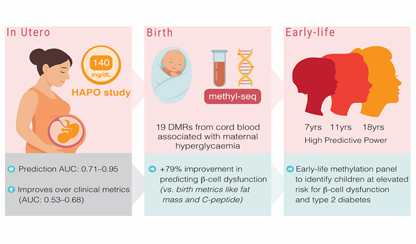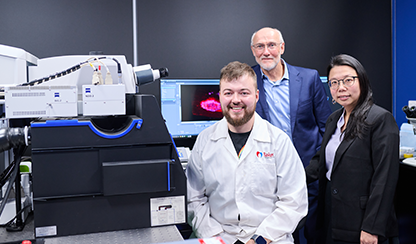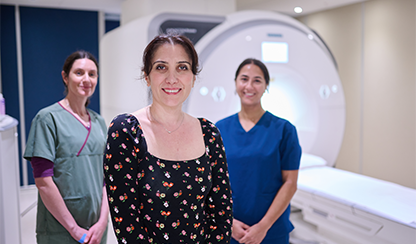12 June 2025
Media release

The Baker Heart and Diabetes Institute welcomes the announcement of the Heart Foundation’s inaugural Catalyst Partnership Grant Awardees with two of our pioneering researchers selected to help change the landscape of Australia’s heart health future.
Associate Professor Alex Pinto’s research into regenerating the heart after a heart attack, and Professor Peter Meikle’s research into smarter screening with lipidomics have been awarded Catalyst Grants. Both these projects are using cutting edge methods and have the potential to be transformative in cardiovascular health both nationally and internationally.
The Heart Foundation is proud to announce all 10 recipients of its inaugural Catalyst Partnership Grants, awarded to pioneering researchers and innovators working to change the future of cardiovascular health. Each Catalyst Partnership Grant Awardee will receive seed funding and Heart Foundation support to secure larger investments.
Assoc. Prof. Pinto and his colleagues are developing a radical new drug leveraging innovative genomic and mRNA technologies to reprogram scar tissue and regenerate damaged cardiac muscle in the injured heart.
Each year, 57,000 people in Australia have a heart attack, causing permanent damage to the heart. Approximately 30 per cent of these people will develop heart failure. As Assoc. Prof. Pinto explains, there’s currently a massive gap in treatment options to treat heart failure that arises from heart attacks. Current therapies are only trying to manage the workload of the heart or stop recurrent heart attacks. None can restore the heart to a healthy state.
Assoc. Prof. Pinto says, “We’re developing a truly innovative drug that will revolutionise how we treat people who suffer from a heart attack, and stop heart failure from emerging. This drug could provide a pathway back for people who have suffered heart attacks.”
Prof. Meikle and his colleagues’ innovative clinical tool could give a more precise heart risk score, improving early detection in the prevention of cardiovascular disease. This lipid (or fat) risk score can be integrated into routine blood tests – assessing high risk plaque build-up in the arteries.
Prof. Meikle explains, “There are two million Australians classified as having an intermediate risk of heart disease. Over the next five years, there will be about 150,000 heart attacks and strokes that occur within this group. Our new test is designed to reclassify individuals as either high risk or low risk. The high risk group could go onto aggressive treatment and hopefully we could prevent those heart attacks and strokes.”
Assoc. Prof. Pinto and Prof. Miekle’s teams will each receive $100,000 from the Heart Foundation in addition to support seeking further funding from philanthropy and other sources including impact investment and venture capital.
Baker Heart and Diabetes Foundation Director Professor John Greenwood says, “We are grateful for the support from our friends at the Heart Foundation to drive this innovative research that can be translated for the benefit of the wider community.”
Each of the ten projects are distinctly varied with each reflecting the bold approach needed to tackle Australia’s leading cause of death and hospitalisation: cardiovascular disease (CVD).
The 10 projects will also become part of the Heart Foundation’s new Innovation Portfolio which is designed to accelerate innovation to keep pace with the heart health challenges facing current and future generations of people in Australia.
For more information and videos about each project please visit: www.heartfoundation.org.au/catalyst
For further information or to organise interviews please contact:
Loretta Walshe
T: 03 8532 1240
M: 0466 941 942
E: loretta.walshe@baker.edu.au





